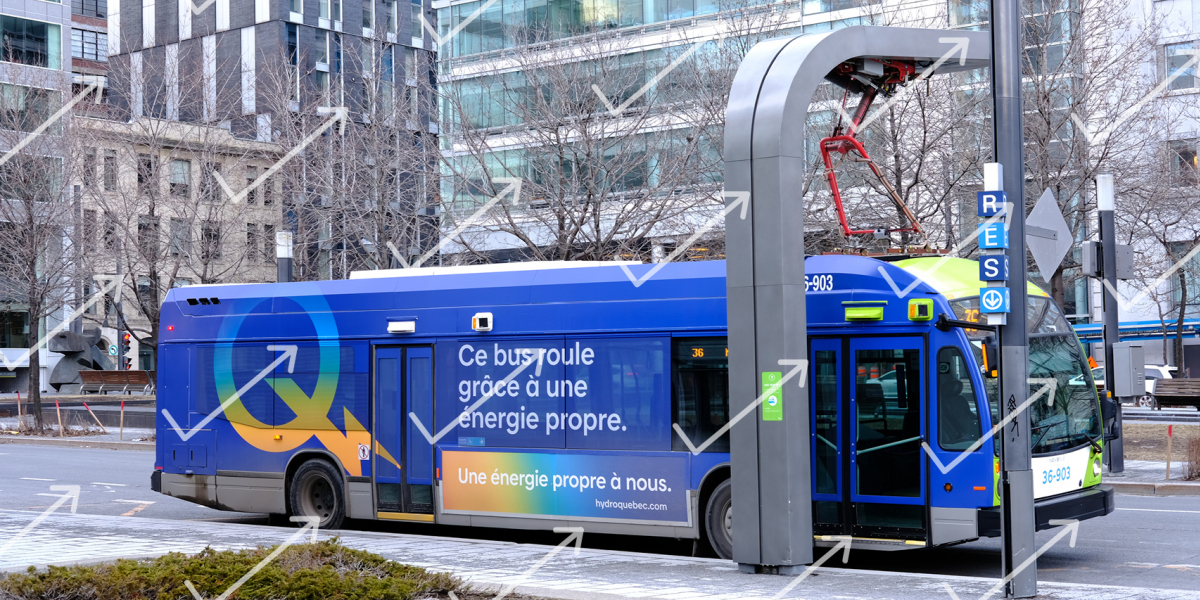
July 7, 2020
By Nathan Lemphers and David Wolfe
This post is part of Smart Prosperity Institute’s Smart Stimulus Project and supports the work of the Task Force for a Resilient Recovery. Want to receive our latest analysis and insights? Sign up for our monthly updates here.
COVID-19 is not the only gale battering Canada these days. Digitization and decarbonization are two other headwinds currently buffeting the country. This perfect storm has created a triple challenge for the economy. And unlike tempests of times past, building roads and gazebos will not protect us from this squall.
To start the slow climb to recovery, we need to dust off an old economic policy playbook — not from the 2008/9 Global Financial Crisis but from post-World War II recovery — and modify it to fit our times. If we are to thrive in a post-pandemic economy, the government needs to support the Canadian economy on a similar scale as the transition from wartime production to a post-1945 peacetime economy. Clearly, this will require a more visible hand of government than we have seen for decades. However, the rigid governance hierarchies and uniform command-and-control regulations witnessed 75 years ago are no longer the only — or most appropriate — guides towards recovery.
More experimentalist approaches to governance and more flexible regulations are required to meet this challenge.
This blog post shows how both of these tools can help Canada’s economy to tackle this triple threat and come out stronger. To ground this discussion in a more tangible form, we give particular focus to electromobility initiatives within the transportation sector.
Cutting-edge, regionally-tailored forms of experimentalist governance that promote flexibility, innovation, and collaboration can also steer our climb to recovery. Experimentalist governance is a form of governing through “deliberately provisional frameworks for action” that are revised and elaborated based on lessons from regional experiences and from “learning by doing.” It brings together key actors (local, regional and national) from both the public and private sector, in addition to intermediary associations (industry associations, civil society) to coordinate their respective activities. Perfection is not expected, especially at the beginning. These iterative meetings allow participants, including governments, to refine policies, tailor strategies, and evaluate what works and what doesn’t.
Even before COVID-19, there were several stand out examples of experimentalist governance in Canada’s transportation sector. The Canadian Urban Transit Research & Innovation Consortium (CUTRIC) brings together industry, public transit, and post-secondary partners to demonstrate battery electric and hydrogen fuel cell electric bus technology and integrate these buses into existing fleets across the country. These learning by doing projects gather funding and expertise from different sectors and rigorously collects region-specific data to help inform subsequent project phases. Similarly, the Alberta Zero Emission Truck Electrification Collaboration (AZTEC), a project with private sector companies, industry associations, and academic partners, will design, manufacture, and test two heavy-duty, extended range, hydrogen fuel cell electric hybrid trucks. The potential of those preliminary, experimental approaches to influence broader policy frameworks is huge as we can see from the sudden rush by both the federal and Alberta governments to jump on the hydrogen bandwagon. The challenge will be to retain the flexible, iterative and reflexive policy design embedded in these early experiments as their results are generalized more broadly.
Flexible regulation, as Cary Coglianese explains, is not an oxymoron. Regulations can be designed to offer more choice or flexibility. The degree of flexibility is a function of stringency, structure, specificity, and scope. Performance standards are one form of flex-regs that do not mandate certain actions or technologies, but rather dictate the attainment or avoidance of a given end state.
In Canada, two examples of provincial performance standards are British Columbia’s low-carbon fuel standard and Quebec’s zero-emission vehicle mandate. The first targets suppliers of transportation fuels, mandating a minimum blend of low-carbon fuels. The second targets automakers, mandating the sale of a minimum percentage of electric vehicles. Both provincial performance standards set targets that can be achieved through a number of compliance options. These flex-regs embody many experimentalist principles. They build in opportunities for review, which consider technology adoption rates and rapidly changing cost structures.
In a world where many disruptive forces are beyond the control of Canadian policymakers or business leaders, flexible regulations can help governments and businesses respond to changing conditions. These kinds of regulations create markets for more innovative goods and services, which in turn can promote experimentation and innovation. As these markets mature or are inevitably hit by additional disruptions, regulations can be modified to fit the times while maintaining momentum towards digitization and decarbonization.
Seen this way, the private sector’s much sought-after certainty is found in sustaining an overarching commitment to digitization and decarbonization.
As the federal government shifts its focus to designing a recovery package to help Canada respond to the triple challenge of post-COVID restructuring, digitization and decarbonization, policy drafters and advocates alike need to consider how these undoubtedly massive recovery programs will incorporate the lessons that can be learned from adopting experimentalist governance and flexible regulations.